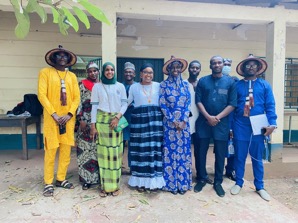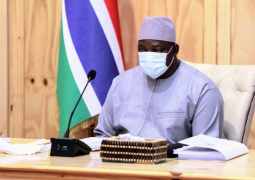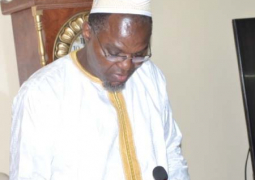
During a briefing at Abuko, journalists were informed about this year's event and the meticulous preparations underway to ensure it is one of the most exceptional yet.
Organisers said prominent artists from both the country and Senegal are set to perform at the festival, which will also feature dramatic presentations highlighting the impact of Fulani migration on food security. Additionally, a Fulani language competition is scheduled to take place.
The eagerly awaited event themed: ‘Traditional Food Systems and Their Relation to Climate Change’ is set to attract hundreds of attendees from within and outside the country. The event is expected to be graced by the nation's first lady and various cabinet ministers. During this occasion, the Fulani community, both local and international, will don their stunning traditional attire, showcasing their rich cultural heritage.
Fulbe Africa is a vibrant, youth-led organisation, registered with the Attorney General's Chambers in 2014. It is a non-political and non-commercial initiative dedicated to safeguarding, preserving, and celebrating the rich cultural heritage of the Fulbe people, both in The Gambia and beyond. This mission is embodied in the very name, Fulbe Africa.
During the convergence, Musa Baldeh, the association’s president, emphasised the importance of the event. He stated that its purpose is to inform the public about the association and to highlight the extensive preparations made to ensure that this year’s event will be truly unforgettable.
He mentioned that each year, the association hosts the festival with the aim of highlighting the rich cultural heritage of the Fulani people.
Since its inception, the association has organised a variety of activities across the nation, according to Baldeh, all aimed at celebrating and promoting Fulani culture, among other initiatives.
Established on Facebook, he added, the association has grown into a respected organisation that draws Fulani individuals both domestically and internationally, united by a shared commitment to celebrating and preserving our cultural heritage.
“Just as the Fulani people are spread across Africa, the association aims to unite them through culture, tradition, and our language, among other aspects," Baldeh affirmed.
The international festival has gained momentum, he said, adding that they now have liaison officers in several African countries.
Through the association, he explained, they have successfully brought together Gambian Fulani individuals under a unified platform, adding: “Despite the linguistic diversity among the Fulani people, we are able to foster unity across all communities."
Despite its focus on the Fulani community, he went on, they actively collaborate with other organisations, emphasising their initiative to hold the first inter-cultural conference with various ethnic groups in the country.
He highlighted that UNESCO reports a significant number of languages, particularly in Africa, have already become extinct, with many others facing the threat of extinction.
“Without decisive action, these vulnerable languages could similarly disappear, creating a reality where they are no longer spoken and ultimately face extinction. The ramifications of such a loss would be profound, especially for our beloved language, Pular, which we are committed to safeguarding.”
In addition to the cultural festival, he said, they also raise awareness among the Fulani community about the importance of national documentation, provide guidance on how to obtain these documents, facilitate dispute resolution between Fulani and other ethnic groups, and address conflicts related to pastoralism.
The head of programmes, Abdoulie Jallow, emphasised that the association aims to unite the Fulani community under a single umbrella, while celebrating their diversity.
"While the festival invites people to celebrate through dance, it also serves as a platform for critical discussions on societal issues," he postulated.
Food security, he stated, is one of the critical challenges facing the Fulani people both domestically and abroad, which is why the theme Food Security in the Context of Climate Change was chosen.





